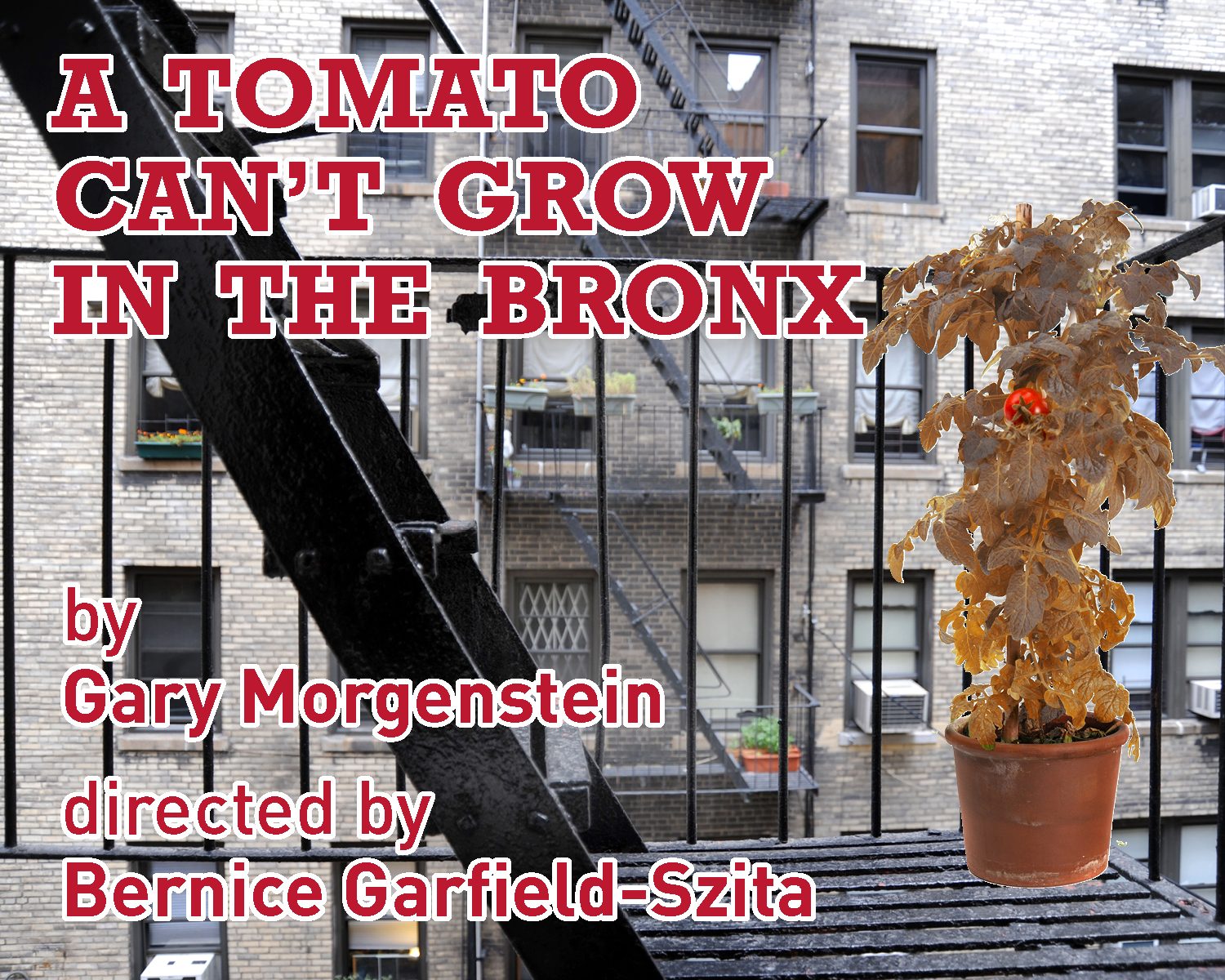In Freehold, A Tomato Can’t Grow in the Bronx Is Gary Morgenstein’s Portrayal of a 1960s Jewish Family
By Susan L. Rosenbluth
On Sundays, April 3 and 10, at 2 pm, the award-winning Central Players of Freehold will present the world premiere of Gary Morgenstein’s A Tomato Can’t Grow in the Bronx, a multi-generational comedy/drama about a dysfunctional Jewish family, set against the backdrop of the tumultuous 1960s.
The story concerns a family languishing under the thumb of a patriarch who uses emotional tyranny over his fragile middle-aged daughter to keep all members of the clan in line. When her dreamy-eyed husband dares to assert himself by buying a home in the suburbs, his unlikely ally becomes his teenage son, who dares to challenge his grandfather in an ultimate generational battle of wits and will.
Mr. Morgenstein says the story is not a depressing sociological treatise. “It’s an uplifting story of a family that overcomes its fears and differences to find a way to come together,” he says.
Whose Time Has Come
His play, he says, is a poignant glimpse of a working-class family trying to adjust to their own individual conflicts as well as to the changes in the world around them. It portrays adult children who are considering leaving their crumbling Bronx neighborhood to seek the American dream of an idyllic suburban home where tomatoes can grow. Forced into upheaval, the family must evolve in more ways than one.
Mr. Morgenstein says, A Tomato Can’t Grow in the Bronx is a story “whose time has come.”
“In these unsettling times, theater should light a path through the terror to find ways to gain faith in ourselves and each other, aided by the timelessness and approved treatment of laughter,” he says.
“Universal Identification”
The director of this production, Bernice Garfield-Szitz, who serves as artistic director of the Center Players of Freehold, points out the importance of recognizing that art is a reflection of its time.
“Even though it is set in 1968, this play examines many of the same issues we face today, including our collective struggle to survive, to communicate, and to connect in a world where there are forces beyond our control,” she says.
When A Tomato Can’t Grow in the Bronx was presented a while ago in a public reading, a member of the audience said the story evoked “a warm, ubiquitous commiseration.”
Mr. Morgenstein agrees. “No matter your background, there is a universal identification with the poignant struggle of a family finding sufficient bravery to love each other,” he says.
Wide Recognition
Mr. Morgenstein’s novels and plays have been featured in national media outlets such as the New York Times, Entertainment Weekly, Parade Magazine, the New York Post, Sports Illustrated, and National Public Radio.
For more information on the production, which will be shown at Center Playhouse, 35 South Street, in Freehold, call 732-462-9093 or go to www.centerplayers.org. The email address is tickets@CenterPlayers.org.
“I’ll consider my work a success if the audience sees themselves, an uncle, a mother, a sibling, up on stage. To connect your world of fiction with the audience’s own reality is a triumph for any artist, in any field,” says Mr. Morgenstein.






